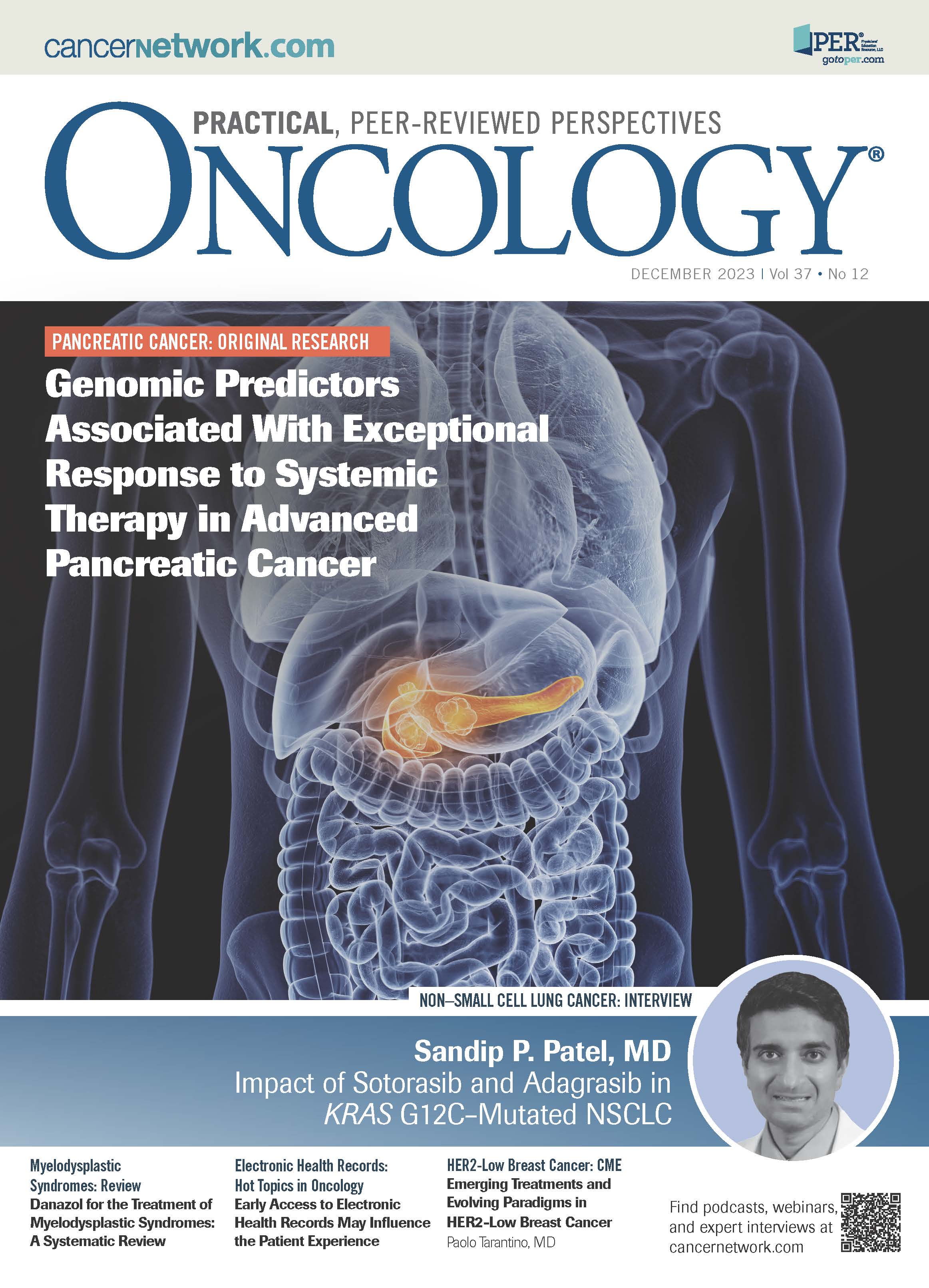2023 Year in Review: Topics in Hematology/Oncology
Julie M. Vose, MD, MBA, looks back at 2023 on accomplishments and setbacks surrounding the heamtology/oncology space.
Julie M. Vose, MD, MBA
CHIEF, HEMATOLOGY/ONCOLOGY,
BUFFETT CANCER CENTER
UNIVERSITY OF NEBRASKA MEDICAL CENTER
OMAHA, NE 68198-9860

The year 2023 has been an important one with many discoveries of new therapies for diverse types of malignancies. There are also some big-picture topics in hematology/oncology that have some important implications for our patients, the practice of hematology/oncology, or the general population. A few examples of topics for further ongoing discussion include:
Drug Shortages:
Although this has been an issue for many years off and on, it seems that shortages are happening more frequently and with more agents as the number of companies that make these older agents decreases and the profitability goes down. We all need to work with the FDA and other involved industries to keep the pipeline of these older agents flowing for our patients.
Hematology/Oncology Training:
During the last 3 years COVID-19 not only affected public health, our patients, and health care workers, it also has had an effect on hematology/oncology trainees. In the early days of the pandemic, many patients with suppressed immune systems became critically ill with COVID-19, and it became a challenge for trainees to fulfill the standard hematology/oncology educational and clinical requirements needed for complete training during this time. Hopefully, as we come out of the pandemic, training programs can catch up and be updated to become more flexible.
Artificial Intelligence:
This topic will be in the news for many years to come. This technology can be an immensely powerful tool for analytical data analysis, patient profile screening for early diagnosis, genomic screening and analytics, and machine learning such as analyzing radiographs in areas where imaging expertise is not available. The applications are endless when utilized in a positive fashion to help both our patients and the science of hematology/oncology care.
Precision Oncology:
Molecular characterization of specific tumor types has led to an increase in treatments using “personalized targeting” of the patient’s malignancy. This method is now used in most malignancies to improve the outcome of the patient’s therapy while trying to reduce the use of toxic agents that are not predicted to benefit the patient. This is an ongoing area of research in almost all malignancies.
Liquid biopsies:
Once a pipe dream, the technology to perform testing for molecular aberrations in the blood is becoming a reality. These tests identify changes in circulating tumor DNA derived from unknown tumor cells, which could potentially signal cancer or minimal residual disease (MRD) following cancer therapy. There are many applications still being tested, but some already in use include testing for MRD in the blood following standard therapies, which may lead to further evaluation for the disease or further treatments for the patient. Other applications include the use of these tests for asymptomatic patients without known cancer for early detection of disease. This testing could have the potential to reduce cancer morbidity and mortality. Over the next year, we will likely see further approvals and applications for this testing.
Immunotherapy:
No single area of cancer therapy has exploded more than the use of immunotherapy. This broad area includes such agents as monoclonal antibodies, bispecific antibodies, chimeric antigen receptor T cells, and immune checkpoint inhibitors. Over the next few years, this area of research and oncology care will continue to expand to treat more types of malignancies and be applied earlier in the course of malignancy treatment.
Hopefully, 2024 will continue to bring new discoveries, treatments, and cures for our patients with all types of malignancies. Happy holidays and Happy New Year to all ONCOLOGY readers.

Newsletter
Stay up to date on recent advances in the multidisciplinary approach to cancer.